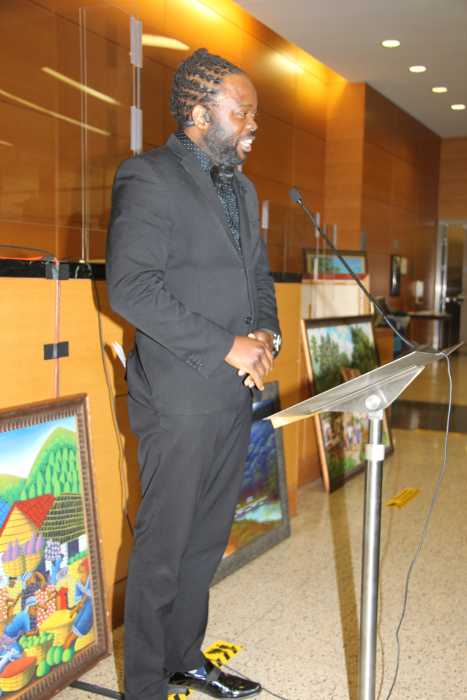City health commissioner says greater effort needed to reach those exposed
While he continues to argue for more HIV testing, more HIV prevention, and increasing efforts to contact and test the sex partners of people who are infected with the virus, Dr. Thomas R. Frieden, the city’s health commissioner, began a December 6 interview by stating what he was not seeking to do.
“Let me first be clear about what we are not talking about here,” Frieden said. “We are not talking about mandatory testing, we are not talking about testing without consent, we are not talking about mandatory treatment.”
Gay City News sought the interview after Frieden published an editorial in the December 1 issue of the New England Journal of Medicine, that read, in part, that the “failure to apply standard disease-control methods undermines society’s ability and responsibility to control” the AIDS epidemic.
Frieden has argued that the state law that requires voluntary and informed consent for an HIV test, written documentation of that consent, and pre- and post-test counseling is a barrier to testing. He pointed to the 1,038 New Yorkers who received an AIDS diagnoses in 2004 at roughly the same time they were first diagnosed with HIV. It typically takes eight to ten years to go from HIV positive to AIDS, so these people were infected for years and did not know it.
“That’s just unacceptable,” Frieden said. “It means they were in and out of healthcare facilities, prisons, homeless shelters, community organizations for ten years on average.”
Most people who are at risk for HIV infection want to know their status, Frieden said.
“We’re finding that when we ask ‘Would you like to know your HIV status?’ they are saying yes,” he said.
The city is spending $4.0 million in “new dollars” for HIV counseling and testing. It has “drastically increased testing” at health department clinics, and “more than quadrupled testing on Rikers Island,” Frieden said. The city has increased the “linkage to care” for those who test positive.
His prevention proposals for increased condom distribution and syringe exchange will likely not be controversial in the queer community.
“Condoms still aren’t used widely enough,” Frieden said. “I think Scott Kellerman put it nicely: we need to cover the city in latex.”
Dr. Kellerman, the assistant commissioner for HIV/AIDS Services, was a co-author on the journal editorial along with Dr. Moupali Das-Douglas and Dr. Kelly J. Henning, two department staffers.
Frieden would also like to see prevention for positives, “a kind of HIV stops with me campaign,” he said. “That is something the community needs to take leadership on. That shouldn’t come from government.”
Perhaps more controversial are proposals to monitor the care of people who are HIV positive and increasing sex contact tracing.
“When it comes to TB, the health department knows who is on treatment, whether they are responding to treatment. If they are not responding, the health department contacts the doctor,” Frieden said. “We do not do a single one of those things for HIV and TB killed 30 people last year and HIV killed 2,000.”
There are roughly 95,000 people living with AIDS or HIV in New York City and the health department simply cannot oversee the care of all of them. Some private doctors may resent a civil servant looking over their shoulder.
“We’re not going to case manage 95,000 people,” Frieden said. “That’s not the proposal, but maybe we should be better tracking some portion of them.”
For people who test positive, the city may expand contact tracing or the practice of identifying their sex partners and urging them to get tested.
“We want to go beyond ‘Who did you have sex with?’ to ‘Who do you hang out with?’” Frieden said. “We can do it in ways so that no one will ever know that you were the one.”
A part of the NEJM editorial suggested that the health department may conduct ongoing partner notification with people who are positive.
“In addition, the policy of offering partner notification only at the time of diagnosis ignores the continuing high-risk sexual behavior of many HIV-positive persons,” the authors wrote.
Frieden stressed that city doctors might ask patients about their sex partners and offer advice about such a service, but it would not be done by health department staff.
“It’s more than a semantic difference,” he said. “I think it would be very inaccurate to suggest that we would be doing this in our role as public health providers.”
Frieden said that the city currently recommends that private physicians ask their patients about sex partners and his department needs to “walk the walk.” That could still create a difficult situation. What will the city do when an HIV positive person, a barebacker, for instance, repeatedly discloses that he has had unprotected sex with other men?
“I don’t know,” Frieden said. “That’s a tough situation. At a minimum you try to make the other people know that they have been exposed and [get them] tested. You certainly want to give personalized information to the individual about why that is happening.”
Frieden, a Bloomberg appointee, has just four years before the next mayor arrives at City Hall and limited funds to implement what is still a largely unformed plan.
“I remain optimistic,” he said. “I think we can make significant improvements.”
gaycitynews.com



































